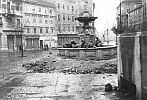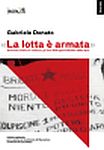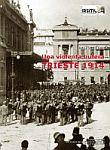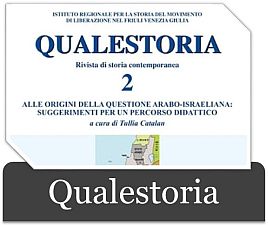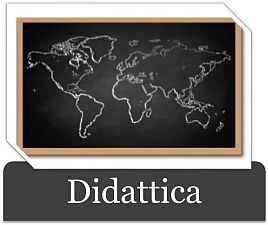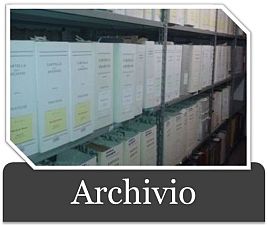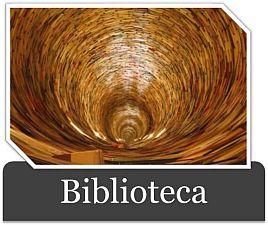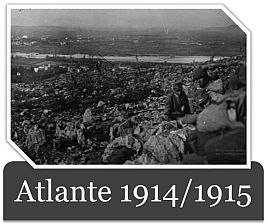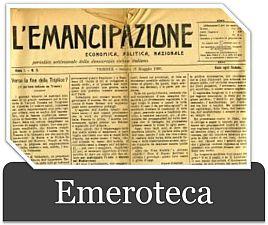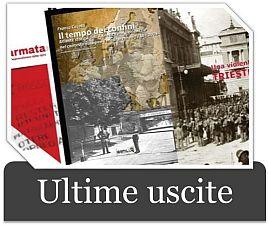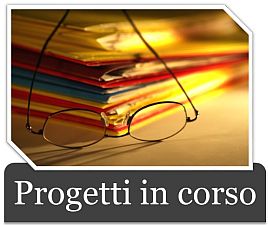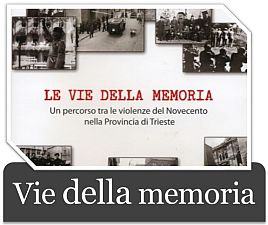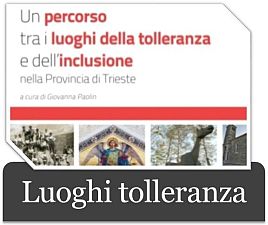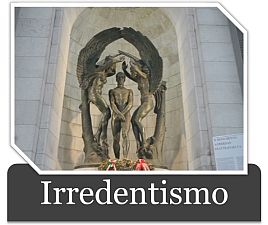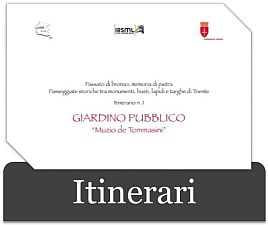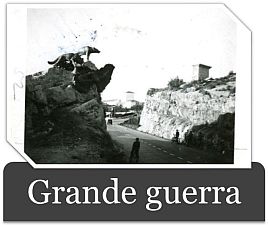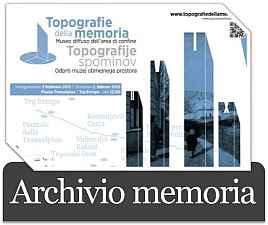| Qualestoria anno XLIV, N.ro 2, Giugno 2016 | ||||
| Rivista di storia contemporanea | ||||
| Miscellanea adriatica | ||||
| Gloria Nemec | Editoriale della nuova direzione | 5 | ||
| Studi e Ricerche | Studies and researches | |||
| Matteo Di Figlia | Dimenticare il Balkan. La distruzione del Narodni Dom di Trieste nelle rielaborazioni fasciste (1921-1941) - The omission of «Balkan». The Narodni Dom destruction in Trieste in the fascist revision | 7 | ||
| Raffaella Scocchi | Il PFR a Trieste: premesse per una ricerca - The Republican fascism in Trieste: the premises to the research | 25 | ||
| Andreas Guidi | Retorica e violenza: Le origini del fascismo a Zara (1919-1922) - Rhetoric and Violence: Early Fascism in Zara (1919-1922) | 51 | ||
| Oleg V. Ratushnyak, Fabio Verardo | I cosacchi e il Terzo Reich. Il collaborazionismo cosacco nella Seconda guerra mondiale - Cossacks and Third Reich. The collaboration of cossacks in World War II | 73 | ||
| Raoul Pupo | La catastrofe dell’italianità adriatica - The Catastrophe of Adriatic Italianity | 107 | ||
| Note critiche | ||||
| Irene Guerrini, Marco Pluviano | La Grande guerra in alcune, recenti monografie | 125 | ||
| Walter Zele | La cortina di celluloide. Come il cinema negli anni della guerra fredda ha raccontato la questione di Trieste | 135 | ||
| Federico Tenca Montini B. Dimitrijević e D. Bogetić | Tršćanska kriza 1945-1954: vojno-politički aspekti [trad. it., La crisi di Trieste 1945-1954: gli aspetti politicomilitari], Institut za savremenu istoriju, 2009 | 157 | ||
| Gli autori di questo numero | 159 | |||
Gli autori di questo numero
Matteo Di Figlia, insegna storia contemporanea all’Università di Palermo. Ha studiato in particolare il fascismo e la storia degli ebrei italiani nell’età repubblicana. Ha pubblicato, tra l’altro, i libri Farinacci. Il radicalismo fascista al potere (Roma 2007) e Israele e la sinistra. Gli ebrei nel dibattito pubblico italiano dal 1945 a oggi (Roma 2012).
Andreas Guidi, dottorando alla Humboldt Universität zu Berlin e all’Ecole des Hautes Etudes en Sciences Sociales de Paris, è attualmente membro del Collège Doctoral Franco- Allemand «Construire le Différences/Unterschiede Denken» e anche membro del progetto di ricerca «Raspad Habsburške Monarhije i transformacije na istočnojadranskom prostoru (1917-1923)». È inoltre il fondatore e il redattore del podcast «The Southeast Passage» sulla storia e le società del sudest Europa (www.thesoutheastpassage.com). Raoul Pupo insegna storia contemporanea all’Università di Trieste. Si è occupato di storia della politica estera italiana, del confine orientale italiano, degli spostamenti forzati di popolazioni nel ‘900 europeo e delle occupazioni italiane dopo la prima e durante la seconda guerra mondiale.
Oleg V. Ratushnyak, nato nel 1968 a Krasnodar, è professore associato presso il Dipartimento di storia e relazioni internazionali dell’Università di Stato del Kuban. Laureatosi in storia nel 1992 presso l’Università di Stato del Kuban, si è dottorato nel 1996 ; l’anno successivo è stato professore associato nel dipartimento di storia moderna e contemporanea e di relazioni internazionali. Dal 2001 al 2002 è stato studente della Scuola superiore di economia e scienze sociali di Mosca e nel 2002 ha compiuto un master presso l’Università di Manchester in Scienze politiche. Si interessa dell’emigrazione cosacca tra il 1917 e il 1970 e ha al suo attivo più di 150 pubblicazioni scientifiche.
Raffaella Scocchi, nata a Trieste nel 1970, si è laureata in Scienze politiche – indirizzo internazionale – all’Università di Trieste nell’anno accademico 1995-1996 con la tesi «Il Partito fascista repubblicano a Trieste». Dal dicembre 2000 è funzionario della Regione Autonoma Friuli Venezia Giulia, in servizio alla Direzione centrale attività produttive, turismo e cooperazione – Servizio industria e artigianato.
Fabio Verardo, nato nel 1982, si è laureato in Storia e Civiltà Europee presso l’Università di Udine ; sta compiendo il dottorando presso l’Università di Trento e collabora all’attività di ricerca dell’Irsml FVG. È autore di saggi e monografie sull’occupazione cosacco-caucasica del Friuli; si occupa di Resistenza, collaborazionismo e giustizia di transizione dopo il secondo conflitto mondiale. Sul tema dell’occupazione cosacca ha pubblicato: «Offesa all’onore della donna». Le violenze sessuali durante l’occupazione cosacco-caucasica della Carnia 1944-1945 (2016); «Otkryt kazaˇcij gospital’». L’occupazione cosacco-caucasica della Carnia attraverso le cartelle cliniche dell’Ospedale Sant’Antonio Abate di Tolmezzo (2013); Krasnov, l’atamano. Storia di un cosacco dal Don al Friuli (2012); I cosacchi di Krasnov in Carnia (2010).
Abstracts
Abstract – The omission of «Balkan». The Narodni Dom destruction in Trieste in the fascist revision
di Matteo Di Figlia
On July 13th 1920, in Trieste, the fascists destroyed a building known as «Balkan», an outpost of the Slovenian community. This essay studies the symbolic legacy of that assault, as it was one of the first fascist squads actions in Italy. The memory of the «Balkan» is analysed through its connections with important squads leaders’ careers, the effects of Trieste’s urban expansion and the fascist cult of the fallen «squadristi». The timeline of this study stretches until the Second World War, when the fascists attack on the Slovenian and Croatian population hit a new peak.
Key words: Fascism, Hotel Balkan, Narodni Dom, Memory of squadrism.
Parole chiave: Fascism, Hotel Balkan, Narodni Dom, Memoria dello squadrismo.
Abstract – The republican fascism in Trieste: the premises to the research
di Raffaella Scocchi
The collapse of the fascist regime: from the political crisis of 1942-43 to Armistice Day 8 September 1943; resurgence of the radicalism in the border fascism. The origin of republican fascism in Trieste and the birth of the republican fascist party. A description of the organizations included in the republican fascist party of Trieste and of their activities. The role and the involvement of the women of Trieste inside the «new» fascism. «Italia Repubblicana»: the official press of the republican fascist party. The militarization of the party: the development of the «Black Brigades» and the existence of a feminine Brigade in Trieste. Toward the defeat: the last days of the republican fascist party in Trieste.
Key words: War, Fascism, Nazism, Trieste, Border
Parole chiave: Guerra, Fascismo, Nazismo, Trieste, Frontiera
Abstract – Rhetoric and Violence: Early Fascism in Zara (1919-1922)
di Andreas Guidi
This article investigates the peculiarities of «fascismo di confine» in Zara, characterized by the lesser extent of conflict between early Fascism on one hand, communism and ethnic minorities on the other. Fascist activists, although defeated in two elections, gained momentum and visibility, and, parallel to the rise of Mussolini’s influence, improved their networks and structures contributing to a circulation of the local political elite. Violence, both in the discourse and the activities of Fascists in Zara, was crucial in this process. Through the use of local press and archival sources, it focuses on the main actors, their social background and their biographic trajectory, questioning the framework and the limits for cooperation in regards to other political factions. While Fascists had a significant degree of integration in local politics already before Mussolini’s seizure of power, this event enacted a dialectic relationship to the central apparatus, placing these activists under the control of loyal prefects and party functionaries.
Key words: Zara, Fascism, speech, violence, borderland.
Parole chiave: Zara, Fascismo, discorso, violenza, confine.
Abstract – Cossacks and Third Reich. The collaboration of cossacks in World War II
di Oleg V. Ratushnyak e Fabio Verardo
This study aims to analyze the reasons and the dynamics that brought the Cossacks to collaborate with the Nazi Germany during the World War II and to understand what drove the fighting troops and their civilian refugees to follow the German troops from the Don Region to Ukraine, Poland, Italy and eventually to Austria. Starting from the political and military context, this article analyses the formation of the troops, the different phases of the Cossacks retreat in Poland, the allocation of the military contingent and the civilian population that was following it in Friuli and Carnia, the delivery of the Cossacks to the Soviet Union by the British at the end of the war. In this work, for the first time, Italian publications and documents have been compared with the Russian ones. Then they have been consistently used to understand the complex phenomenon of the Cossacks collaborating with the Nazi Germany.
Key words: cossacks, World War II, collaborationism, Nazi Germany, Friuli.
Parole chiave: cosacchi, Seconda guerra mondiale, collaborazionismo, Germania nazista,
Friuli.
Abstract – The Catastrophe of Adriatic Italianity
di Raoul Pupo
The essay describes the parable of the adriatic italianity from the Treaty of Campofomido to the exodus of the Julian-Dalmatian people. Particular attention is paid to the comparison between the First post-war period and the Second one.
Key words: east italian border, Venezia Giulia, Dalmatia, National Memorial Day of the Exiles and Foibe, Italian-Yugoslav relationships.
Parole chiave: confine orientale d’Italia, Venezia Giulia, Dalmazia, Giorno del ricordo, relazioni italo-jugoslave.



